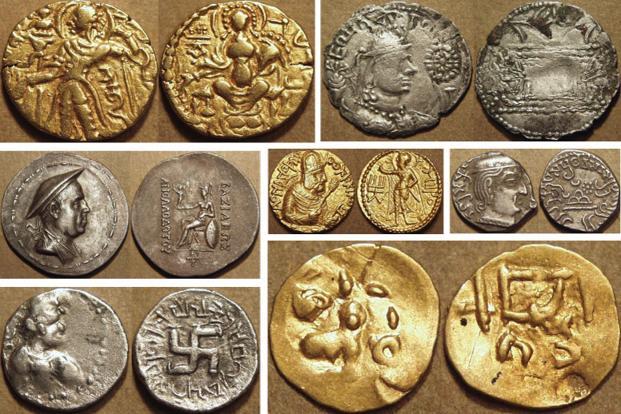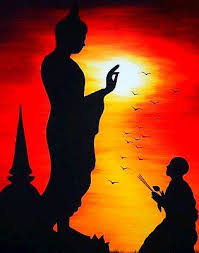The man of suprareason is not against the rational: he is beyond the rational. He sees that the rational and the irrational both are part of life like day and night, like life and death. To him opposites have disappeared and they have become complementaries.
Zen is a transcendental attitude. Patanjali is a very logical attitude. If you move with Patanjali by and by in the ultimate peaks you will reach to the suprarational. In fact just as ordinary religious people are afraid of science and reason and logic; people who cling to the scientific attitude, they are afraid of Zen. You can read Arthur Koestler’s books, a very logical man, but he seems to be in the same plight as ordinary religious people. Now logic has become religion to him: he is afraid of Zen. Whatsoever he writes about Zen has a trembling in it, a fear, an apprehension – because Zen destroys all categories.
Ordinary Christianity, Hinduism, Mohammedanism, they are below reason.
Extraordinary Christians – Eckhart, Bohme – Sufis, Kabir, they are beyond reason.
Patanjali can be a bridge for an ordinary human being, ordinarily religious, to move towards Zen. He is the bridge; there exists no other bridge. Patanjali is the scientist of the inner. Man can live two types of lives: a life which is exterior, a life of exteriority: and man can live another type of life, a life which is interior, a life of interiority. Patanjali is the bridge. What he calls samyama is a balance between the exterior and the interior to come to such a balance that you just stand in between; you can move out, you can come in; nothing is blocking your way; you are available to both the worlds.
In that sense Patanjali is a greater scientist than Einstein. Someday or other Einstein will have to learn from Patanjali. Patanjali has nothing to learn from Einstein because whatsoever you know of the outside world remains, at the most, information. It can never become real knowledge, because you remain outside of it. Real knowledge is possible only when you have to come to the very source of knowing – and there happens the greatest miracle, and many miracles.
The greatest miracle is that the moment you come to the very source of knowing, you disappear. The closer you come to the source, the more you start to disappear. Once centered, you are no more; and yet, for the first time you are.
You are no more as you used to think about yourself. You are no more the ego, that trip is over. For the first time you are a being.
And with this being, the greatest miracle has happened to you, you have come home. That’s what Patanjali calls samadhi. Samadhi, means all problems solved, all questions dissolved, all anxieties resolved. One has come home. In total rest, in total tranquillity, nothing disturbs, nothing distracts. Now you are available to enjoy. Now every moment becomes a sheer delight.
First thing, religion got hooked, in the infrarational. Second thing, so-called religious people became more and more inauthentic – all their beliefs became borrowed. And third thing the world became much too impatient. People are in such a hurry – going nowhere, but in a great hurry. Moving faster and faster and faster and faster. Don’t ask them. “Where are you going?” Because that becomes an embarrassing thing. Don’t ask them. Just ask, “How fast are you going?” To ask, “Where are you going?” is uncivil, unmannerly, because nobody knows where he is going.
People are in a hurry, and religion is such a tree that it needs patience. It needs infinite patience. It needs no-hurry. If you are in a hurry, you will miss what religion is. Why has this so great hurry been created in modern life? From where has it come? Because in such a hurry you can, at the most, play with things; you can at the most play with objects. Subjectivity needs long patience and waiting. It grows, but not in a hurry. It is not a seasonal flower. You cannot get it and within a month it is flowering. It takes time. It is the eternal tree of life. You cannot do it in a hurry.
That’s why, more and more, people become interested in things, because you can get them immediately, and people become less and less interested in person.
With their own person also they are not related, and with others’ persons also they are not related. In fact people use a person like things and people love things like a person.
I know a man who says he loves his car. He cannot be so certain about his wife – he is not. He cannot so certainly say, “I love my wife,” but he loves his car. He uses his wife and loves his car. The whole thing has gone upside down.
Use things: love persons. But to love another person, first you will have to become a person, That takes time: that takes long preparation.
That’s why people become afraid when they read Patanjali it seems to be a long process. It is.
I was reading: It happened that one insomniac was delighted when his doctor gave him such an inexpensive prescription for getting to sleep.
“One apple before bedtime,” said the doc.
“Wonderful!” the patient started to leave.
“Wait, that’s not all.” cautioned the doctor. “It must be eaten in a certain way.”
The insomniac paused to listen to the rest of the prescription. “Cut the apple in half,” said the doctor. “Eat one half, then put on your coat and hat and go out and walk three miles. When you return home, eat the other half.”
No shortcuts exist. Don’t be fooled by shortcuts: life knows no shortcuts. It is a long way, and the long way has a certain meaning, because only in that long awaiting do you grow, and you grow gracefully.
The modern mind is in too much of a hurry. Why? What is the hurry? Because the modern mind is much too ego-centered. From there comes the hurry. The ego is always afraid of death – and the fear is natural because the ego is going to die.
Nobody can save it. You can protect it for a time being, but nobody can save it forever. It is going to die. You as separate will have to die, and the more you feel that you are separate from existence, from the totality, the more you become afraid. The fear comes because of the separation. The more you become individualistic, the more anxiety-ridden.
In the East where people are not so individualistic, where people are still in a primitive state, where people are still part of the collective, where individuality is not insisted upon so much; they are not in a hurry. They move slowly, they take time: they enjoy the journey. In the West where ego is insisted upon too much and everybody starts to be an individual, more and more anxiety, more and more mental disease, more and more trembling and fear and anguish, more and more apprehension about death. The more you are individualistic, the more you are going to die. Death is always in proportion to your individuality because only the individual dies.
The universal in you goes on living. It cannot die. It was There before you were born: it will be there when you are gone.
I have heard a very beautiful anecdote:
“Yes,” said the boastful man, “my family can trace its ancestry back to the Mayflower.”
“I suppose,” remarked his friend, sarcastically, “next you will be telling us that your ancestors were in the ark with Noah.”
“Certainly not.” said the other, “My people had a boat of their own.”
The ego goes on and on and on, separating you. This separation is the cause of death.
Then you are in a hurry because death is coming – life is short, time is short, many things to do. Who has time to meditate? Who has time to move into the world of yoga? People think these things are only for crazy people. Who is interested in Zen? Because if you meditate you will have to wait years and years in a very intense, passionate, but passive, awareness. You will have to go on waiting. To a Western mind – or to a modern mind because the modern mind is Western – to a modern mind this seems a sheer wastage of time. That’s why the flower of religion has become impossible.
People go on pretending that they are religious, but they avoid real religion. It has become a social formality. People go to the church, to the temple, just to be respectable. Nobody takes religion sincerely – because who has time? Life is short and many things to do. People are more interested in things like having a bigger car, having a bigger house, having more money in the bank balance.
People have completely forgotten that the real business is to have more being.
The real business of life is to have more being – not more bank balance, because the bank balance will remain here. You will be gone. Only your being can go with you.
Yoga is the science of your innermost being, the science of subjectivity, the science of how to grow more, how to be more… how really to become a god so that you are one with the whole.
Tags: Patamjali The Science Of Subjectivity









